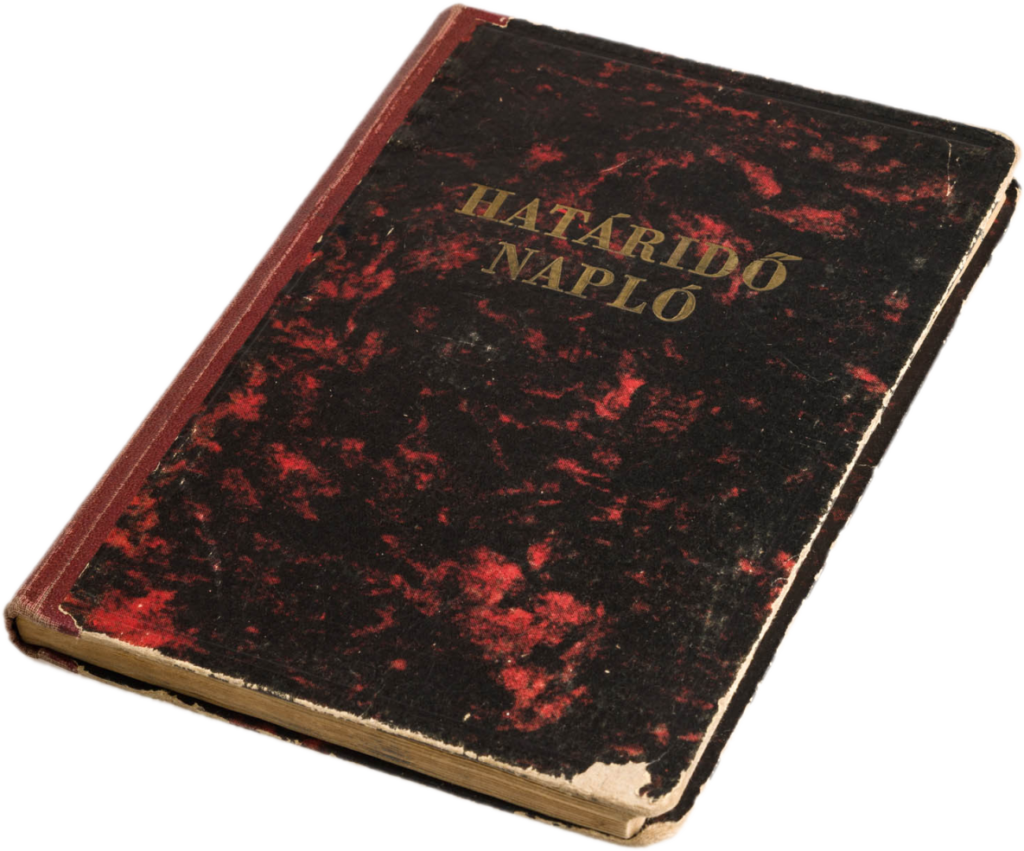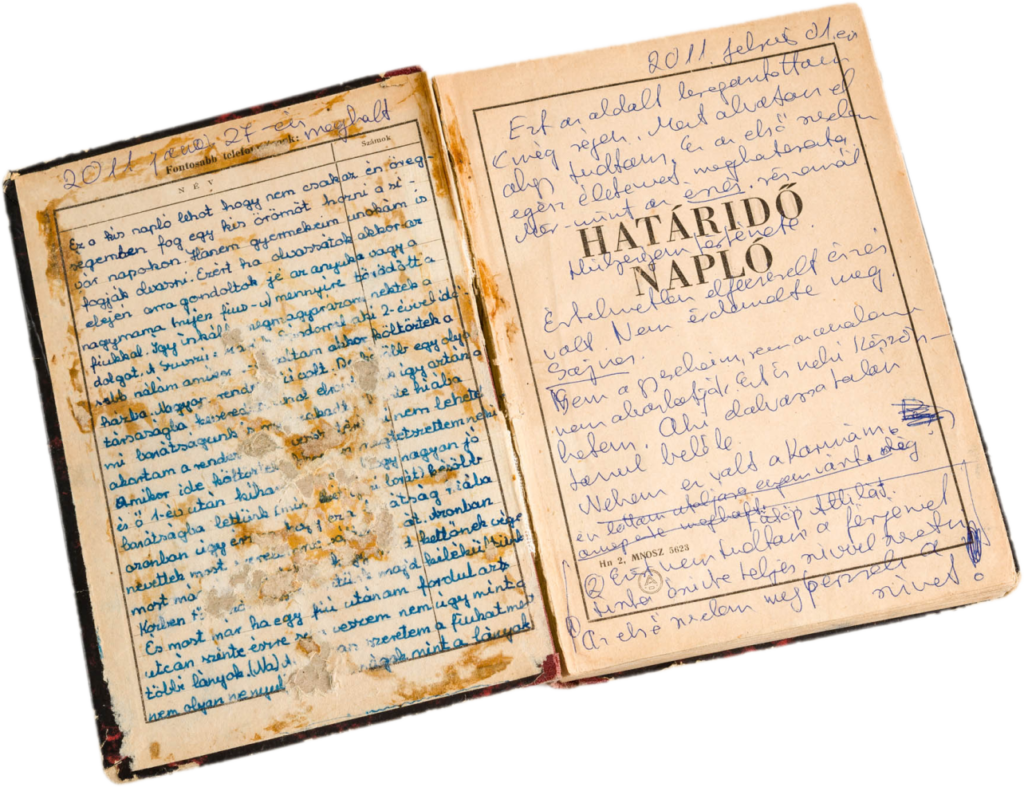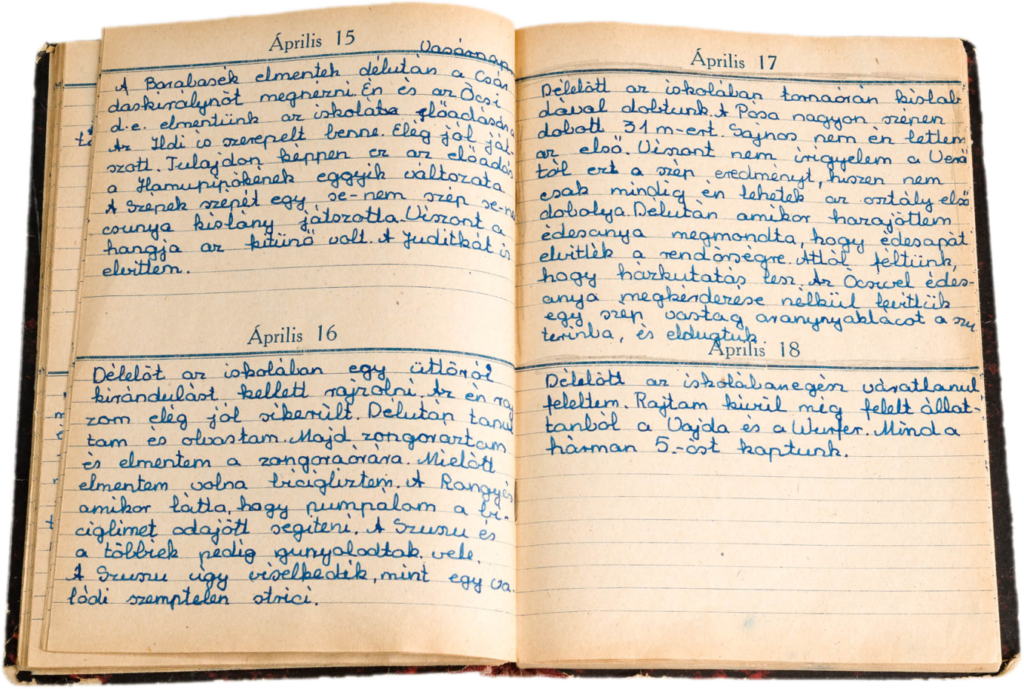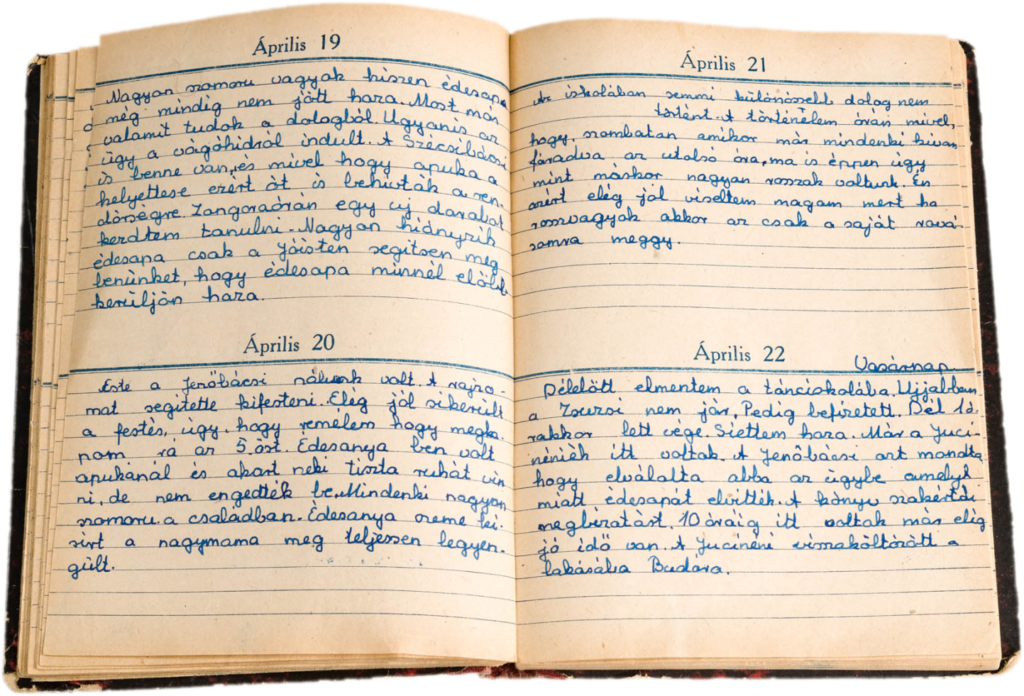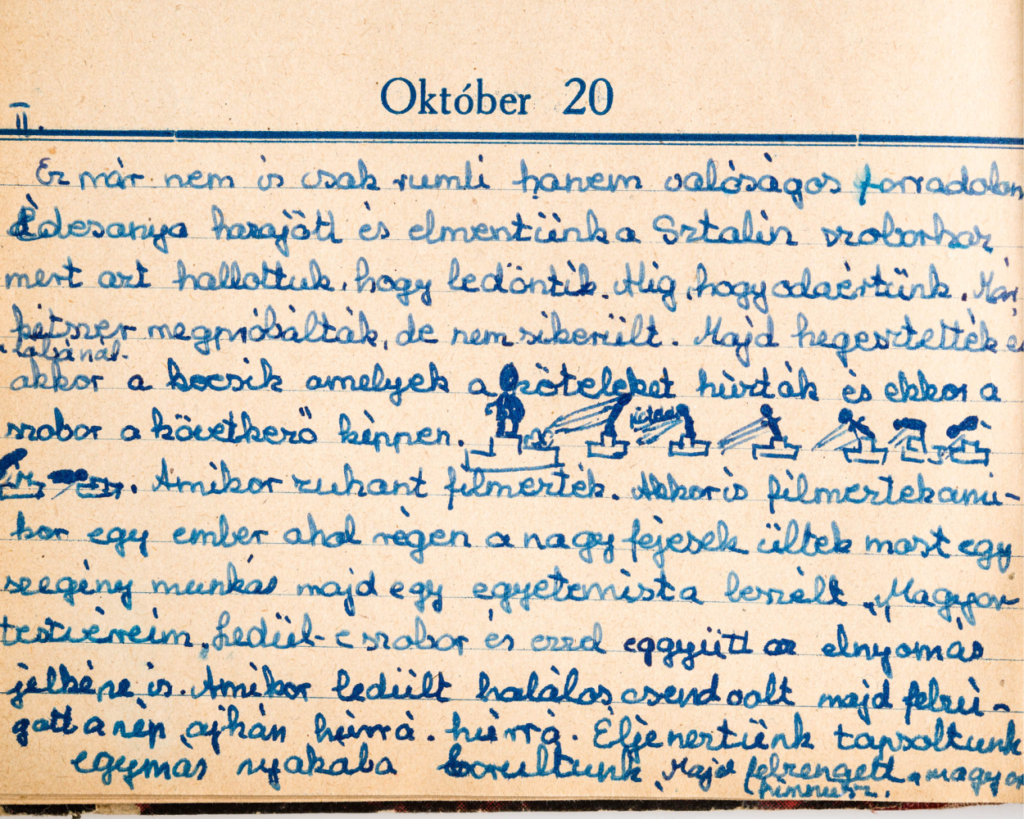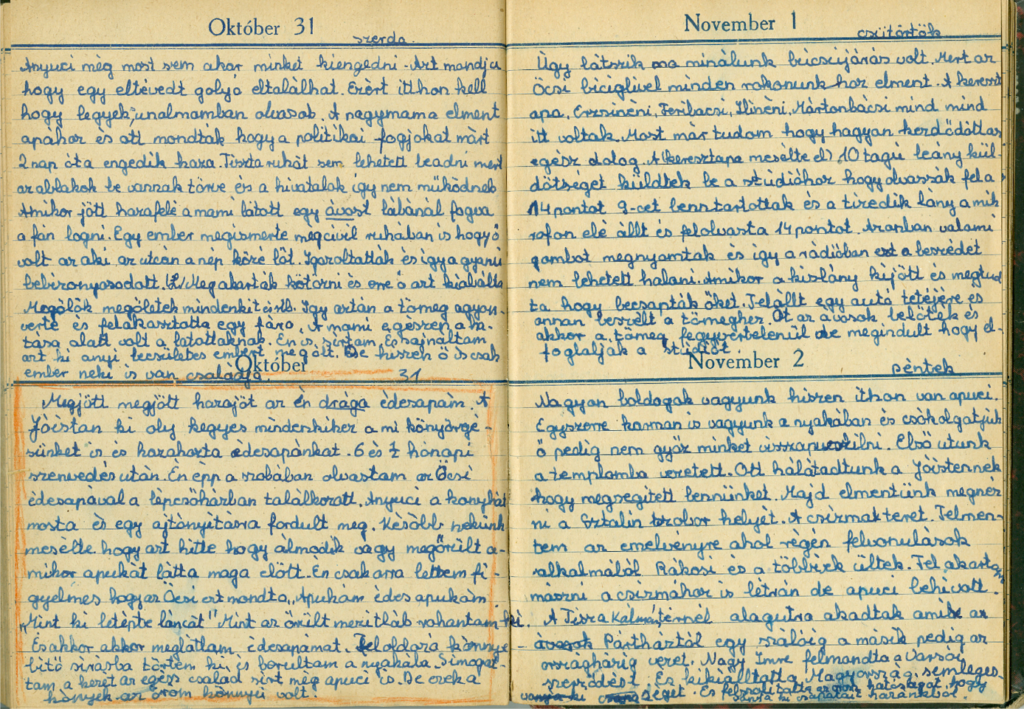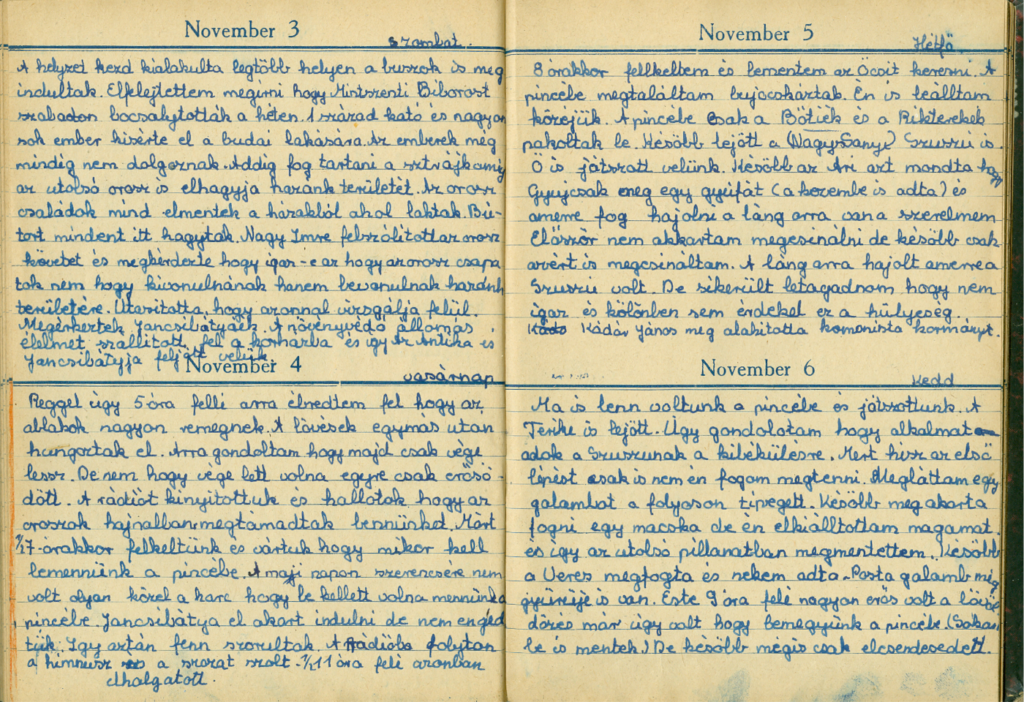THE DIARY OF A TEENAGE GIRL FROM 1956 / Mária Weltz Fülöpné
At the age of 14, I recorded the events of my life into a hardcover calendar. When I started writing it, I did not know that 1956 would turn out to be such an important year. My first entries were about my first love, my school, piano lessons, and dancing classes.
In the spring of that year, my father was taken away in a black car by people from the State Protection Department of the Hungarian State Police. He was a butcher, a self-made man who managed to open a shop of his own at the age of 32. The shop was nationalized in 1952. Afterwards he managed a state butcher’s shop. When the meat was not of first-class quality, butchers used to grind it, instead of returning it to the centre, and produced sausages, sharing the profit. This practice was the reason for imprisoning my father, who had to leave two minor children behind, for three years with the charge of “harming the people’s economy”. While he was in prison, my mother undertook cleaning work at the local pub, on top of her full-time job. We, children were mostly taken care of by my grandmother, as best she could. My father was released for 3 months on 31 October 1956. After the revolution he could have deserted the country, as he came from a German family background – but he decided not to.
From the first day of the revolution, my twelve-year-old brother was going around the city. Asking for a ride on a truck, he went everywhere, where the events were unfolding. When my mother returned from work in the evening on 23 October, we went to the Marching Square, where a lot of people gathered waiting to demolish the statue of Stalin. When they finally managed to do so, there was a moment of silence followed by outbursts of joy and people giving each other hugs and kisses. All at once, some people started to sing the national anthem. Those were uplifting moments. The people’s desire for freedom burst out with elemental power. That memory makes me shiver up to this day.
I have numerous memories from the period after, as well, but they are not so nice. With the boys, we took walks in the bombed-out city and I saw the burnt-out tanks set aflame by the Molotov cocktails thrown by youths who later left the country, being afraid, rightfully, of retribution.
The details of the events in 1956 are recorded in my diary seen by the eyes of a fourteen-year-old girl. I even have a drawing about the demolishment of the Stalin statue. His boots were left in the square for a long time, because the statue could be cut off at that level. One night, someone wrote a graffiti on them: “Boots Square”.
